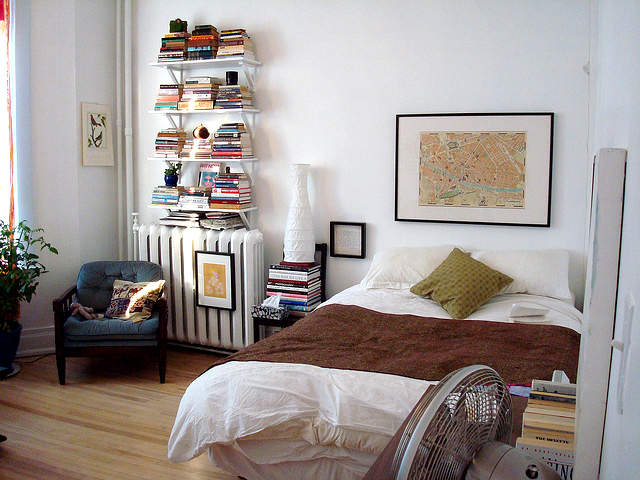 Years ago, feng shui was all the rage. The ancient Asian art of interior design made its way into many homes in the West, cultivating a healthy space that qi could flow through. Feng shui lays out where to place a bed, what colors are best suited in a room, and which elements to incorporate, such as water or a house plant. Now that yoga has gained great popularity in the West, its sister science and predecessor to feng shui follows closely behind.
Years ago, feng shui was all the rage. The ancient Asian art of interior design made its way into many homes in the West, cultivating a healthy space that qi could flow through. Feng shui lays out where to place a bed, what colors are best suited in a room, and which elements to incorporate, such as water or a house plant. Now that yoga has gained great popularity in the West, its sister science and predecessor to feng shui follows closely behind.
Vastu shastra is the science of architecture, which Chinese Buddhist monks adapted to create feng shui. Long before the Chinese, the Hindus began coordinating their living environments and temples according to solar energies, the stars, the elements, and directions. Vastu shastra investigates our relationship to a building, and also indicates that the building or land has a soul of its own. It is believed that the building’s energy must flow, and should the prana find itself stuck, discord will occur. The purpose of studying vastu and applying it to the home is so that one may be supported by and hopefully thrive in their space. Vastu sees the energy in the home as unmanifested manifestations; potential energy to invigorate and harmonize its inhabitants.
Vastu shanstra works from a compass, or a mandala. Cardinal directions coordinate with elements, making particular parts of the home more beneficial for some activity, and not others. The North-East represents water. It is the direction from which energy comes in, and then it flows through to the South-West. From here, it becomes more and more involved. You can plan to build your home or office space according to vastu, or design your rented space accordingly, to make your space flow for you.
You may find that designing a room according to vastu gives a space life. It has existed as long as yoga with good reason, acknowledging the subtle energies of the earth, the moon, and the elements that we often find ourselves out of touch with in modern times. Below are some ways you can incorporate vastu in your home to see for yourself:
1. Bedroom should be in the South-West. Your head should be in the South or West. avoid sleeping with your head to the North at all costs.
2. Your space should be well-aired through cross-ventilation.
3. Doors should open into a room, rather than the reverse.
4. Heavy kitchen appliances should be in the South and West.
5. Wash your hands and feet upon returning home.
6. Keep your home tidy, as clutter will lead to arguments.
7. Set living room furniture in a square or a circle.
8. Keep corners bright.
9. No television in the bedroom.
Would you try incorporating vastu tips? Or have you already tried them and found them useful? Let me know!
Also see: 9 Ways to Refresh the Energy in Your Home
Also by Jess: Sweet and Savory Corn Pudding
Get more like this—Subscribe to our daily inspirational newsletter for exclusive content!
__
Photo: Jocelyn Durston via Flickr




